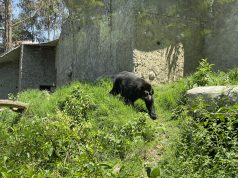In today’s fast-paced world, ensuring the health and well-being of our children is a priority that weighs heavily on every parent’s heart. As we navigate through seasonal changes and the inevitable exposure to various germs, it’s natural to seek ways to fortify our children’s defenses. The immune system, a complex network of cells and proteins, plays a crucial role in safeguarding their health, and nurturing it naturally can be both effective and empowering. This guide is designed to offer you practical, empathetic advice on how to boost your child’s immune system using natural methods, helping them thrive in a healthy, balanced environment. By integrating these strategies into your daily routine, you can provide your child with a solid foundation for a resilient immune system, paving the way for a vibrant and energetic life.
Understanding the Foundations of a Strong Immune System
At the heart of a robust immune system lies a combination of factors that work together to protect the body from illness. It’s essential to ensure that your child receives a balanced diet rich in nutrients. Key components to focus on include:
- Vitamins and Minerals: Incorporate foods high in Vitamin C, Vitamin D, and zinc, such as citrus fruits, leafy greens, and nuts.
- Probiotics: These beneficial bacteria found in yogurt and fermented foods like kefir can help maintain a healthy gut microbiome, crucial for immune function.
- Antioxidants: Encourage the consumption of berries, tomatoes, and other colorful fruits and vegetables to help combat free radicals.
Another pillar of immune health is ensuring your child gets adequate sleep and physical activity. Sleep is crucial for the body to repair and regenerate, while regular exercise can enhance immune response. Consider setting a routine that includes:
| Activity | Recommended Duration |
|---|---|
| Sleep | 9-12 hours per night |
| Exercise | 60 minutes per day |
Lastly, fostering a stress-free environment is vital. Emotional well-being can significantly impact physical health. Encourage open communication, engage in mindfulness practices, and ensure your child has time to relax and play. By creating a nurturing and balanced environment, you lay a strong foundation for your child’s immune system to thrive.

Nourishing Your Child with Immune-Boosting Foods
As parents, nurturing your child’s health is paramount, and one of the most effective ways is through their diet. Integrating immune-boosting foods into their meals can fortify their defenses against common illnesses. Here’s a guide to some essential foods that can enhance your child’s immunity naturally:
- Citrus Fruits: Rich in Vitamin C, citrus fruits like oranges, lemons, and grapefruits can help increase the production of white blood cells, crucial for fighting infections.
- Yogurt: Packed with probiotics, yogurt can help maintain a healthy gut microbiome, which is essential for a robust immune system.
- Leafy Greens: Vegetables such as spinach and kale are loaded with vitamins A, C, and E, as well as antioxidants that support immune function.
- Almonds: A great source of Vitamin E, almonds are vital for a healthy immune response and also serve as a delicious snack.
| Food | Key Nutrient | Benefit |
|---|---|---|
| Blueberries | Antioxidants | Reduce oxidative stress |
| Sweet Potatoes | Beta Carotene | Enhances skin barrier |
| Garlic | Allicin | Boosts white blood cell activity |
Incorporating these foods into your child’s daily diet can be a delightful experience, full of vibrant colors and flavors. Remember, the key is variety and balance, ensuring they receive a broad spectrum of nutrients for optimal health.

Incorporating Physical Activity and Rest for Optimal Immunity
Engaging your child in regular physical activity and ensuring they get enough rest are vital components of a robust immune system. Encouraging outdoor play not only allows them to soak up vitamin D from sunlight but also boosts their overall physical health. Activities such as cycling, running, or playing sports can be both fun and beneficial. Remember, the goal is to keep it enjoyable, so they stay motivated and active.
- Encourage at least 60 minutes of physical activity daily.
- Mix structured sports with free play for variety.
- Incorporate family activities like hiking or dancing.
Equally important is ensuring your child gets sufficient rest. Sleep is the body’s time to repair and regenerate, which is crucial for maintaining a strong immune system. Establish a consistent bedtime routine that promotes relaxation and prepares them for sleep. Aim for the recommended hours of sleep according to their age:
| Age Group | Recommended Sleep |
|---|---|
| 1-2 years | 11-14 hours |
| 3-5 years | 10-13 hours |
| 6-12 years | 9-12 hours |

Harnessing the Power of Nature and Mindfulness for Resilience
Children are like sponges, absorbing the world around them. To help them thrive, it’s crucial to integrate natural and mindful practices into their daily lives. Embracing nature and mindfulness can not only boost their immune system but also foster a resilient mindset.
Incorporate Nutrient-Rich Foods
- Fruits and Vegetables: Encourage a rainbow diet with a variety of colors to ensure they get a mix of vitamins and minerals.
- Probiotic-Rich Foods: Yogurt, kefir, and fermented foods can help maintain a healthy gut flora, which is vital for immunity.
- Healthy Fats: Avocados, nuts, and seeds support brain health and enhance nutrient absorption.
Mindful Outdoor Activities
- Nature Walks: Explore local parks or forests. Encourage children to observe and reflect on their surroundings.
- Mindful Breathing Exercises: Teach them to focus on their breath while surrounded by nature, helping to reduce stress.
- Gardening: Involve them in planting and caring for a garden, which can be a grounding and educational experience.
Balanced Daily Routine
| Activity | Time Allocated |
|---|---|
| Healthy Breakfast | 30 minutes |
| Outdoor Play | 1 hour |
| Quiet Time/Mindfulness | 20 minutes |
| Family Dinner | 45 minutes |
Establishing a routine that balances nutrition, activity, and rest can create a nurturing environment that supports their overall well-being.








































